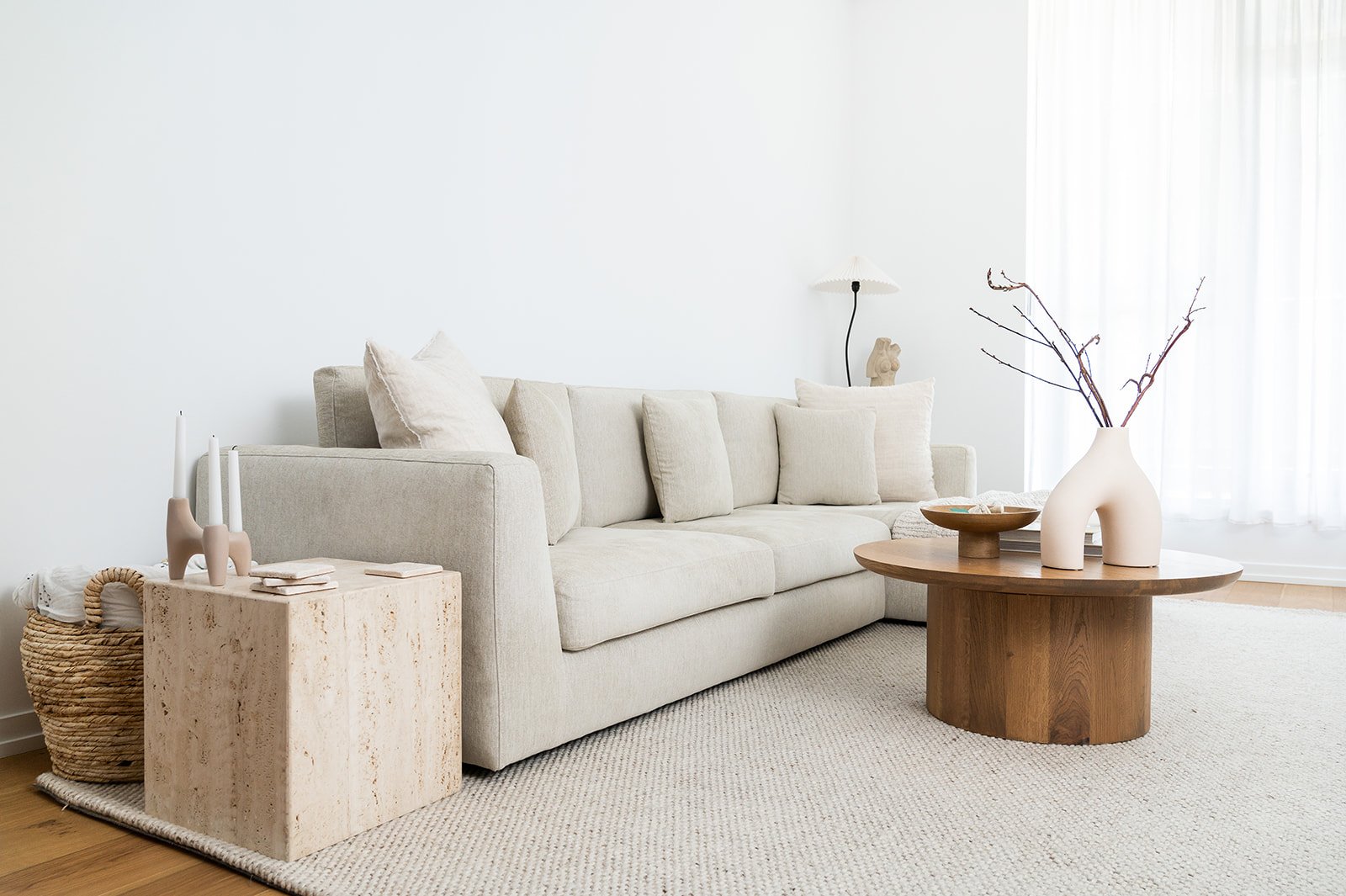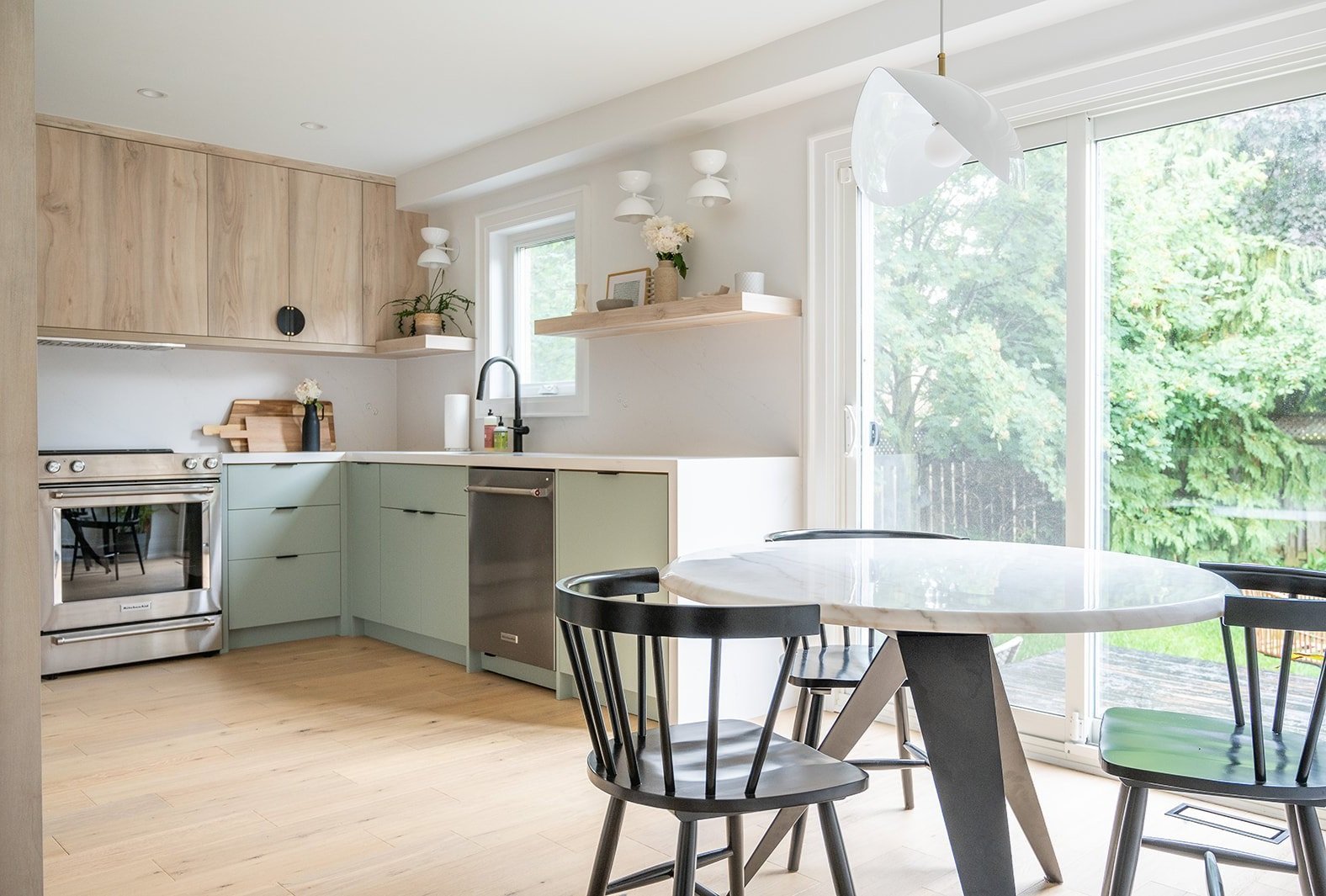Feng Shui Principles In Interior Design
In the world of interior design, one philosophy has stood the test of time, offering a holistic approach to creating harmonious living spaces - Feng Shui. With its roots in ancient Chinese wisdom, Feng Shui interior design has captured the imagination of those seeking a balanced, serene, and energy-infused living environment. If you're considering hiring an interior designer to transform your space, read on to discover the transformative power of Feng Shui principles.
Here are some basic Feng Shui principles:
1. Understanding Feng Shui:
Feng Shui, which translates to "wind-water," revolves around the concept of arranging your surroundings to harness positive energy (Chi) flow. This ancient practice delves into the subtle interplay between nature, energy, and design to promote harmony and well-being.
2. Balance and Harmony:
Central to Feng Shui interior design is the pursuit of balance and harmony. This philosophy emphasizes the equilibrium between the five elements - Wood, Fire, Earth, Metal, and Water - to ensure a serene and welcoming atmosphere. Interior designers well-versed in Feng Shui principles can skillfully integrate these elements, creating a space that feels both natural and aesthetically pleasing.
3. The Commanding Position:
In Feng Shui, the commanding position refers to the strategic placement of key pieces of furniture to enhance the flow of Chi. This concept suggests positioning your bed, desk, and stove in a way that allows you to see the door while providing a solid backing, symbolizing support and security. Expert interior designers can ensure that your space adheres to this crucial principle, optimizing energy flow and promoting a sense of control.
4. Declutter for Energy Flow:
A cluttered space can lead to stagnant energy and hinder the free movement of Chi. Feng Shui encourages decluttering as an essential step in promoting positive energy. A skilled interior designer will work with you to streamline your space, organizing your belongings in a way that fosters a calm and revitalizing environment.
5. The Power of Colours:
Colours have a profound impact on our emotions and energy levels. Feng Shui utilizes a carefully curated palette to evoke specific energies. Warm colors like red and orange can infuse spaces with passion and creativity, while cooler tones like blue and green promote tranquility and growth. A seasoned interior designer will leverage this color psychology to create rooms that resonate with your desired energy.
6. Enhancing Natural Light:
Natural light is a cornerstone of Feng Shui interior design. It invigorates spaces with vibrant energy and uplifts the spirit. Interior designers can strategically position mirrors and reflective surfaces to amplify natural light, while also selecting window treatments that allow for optimal sunlight exposure.
7. Connecting with Nature:
Bringing nature indoors is integral to Feng Shui. Incorporating plants and natural materials like wood and stone not only enhances aesthetics but also invites positive energy. An expert interior designer can integrate these elements seamlessly, infusing your space with a soothing connection to the natural world.
Now, let’s dive a little deeper and talk about how Feng Shui principles can tie into the interior design of your home:
When it comes to the location of the living room and kitchen within a home, there are several Feng Shui principles to consider. Keep in mind that these principles are general guidelines, and individual circumstances may vary.
Living Room Location:
The living room is often considered a central gathering space for family and friends. It's important for it to have good energy flow and feel welcoming.
Ideally, the living room should be located near the front entrance of the home, allowing for a smooth and gentle flow of energy from the main entrance into the living space.
It's beneficial if the living room is not directly facing the main entrance or a bathroom, as this might lead to energy disturbances. Avoid placing the living room directly in line with the front door.
Kitchen Location:
The kitchen is associated with nourishment and prosperity in Feng Shui. A well-designed kitchen can support the overall energy of the home.
The kitchen should ideally be located away from the main entrance and not directly visible from the front door. This prevents the energy associated with cooking and food preparation from flowing directly out of the home.
It's considered beneficial if the kitchen is in proximity to the dining area, as this promotes a smooth transition between cooking and dining, symbolizing the continuity of nourishment.
Avoid placing the kitchen directly under or above a bedroom, as this can create clashes between the fire energy of the kitchen and the restful energy of the bedroom.
Balancing Elements:
Feng Shui emphasizes the balance of the five natural elements: Wood, Fire, Earth, Metal, and Water. Each area of your home should have a balanced representation of these elements for optimal energy flow.
In the living room, incorporate elements such as wood (plants, wooden furniture), fire (candles, lights), earth (earth-toned decor), metal (metallic accents), and water (decorative water features) in appropriate proportions to create a harmonious atmosphere.
In the kitchen, balance the elements by using colors and materials that represent the different elements. For example, wood (cabinets, cutting boards), fire (cooking appliances), earth (earthy tones), metal (appliances), and water (sink, blue or black accents).
Clutter-Free Spaces:
Both the living room and kitchen should be kept clutter-free. Clutter can disrupt the flow of energy and create stagnant areas.
Organize and declutter these spaces regularly to allow energy to flow smoothly and promote a sense of tranquility.
Remember that Feng Shui is a holistic practice that considers various factors, including the layout, architecture, and energy flow of a space. While these principles offer guidance, it's important to adapt them to your specific home and personal preferences to create a harmonious and balanced living environment.
Article by Jude Kamal, Founder & Registered Interior Designer of Sansa Interiors.
Looking for an Interior Designer in Toronto?
Are you looking to turn your home or business into the serene, supportive and harmonious space you’ve been dreaming of? We can help! Our team serves Toronto, Etobicoke, Mississauga, and the rest of the Greater Toronto Area. Contact us via our website to find out more about how interior design can help to improve your overall health and wellbeing.




